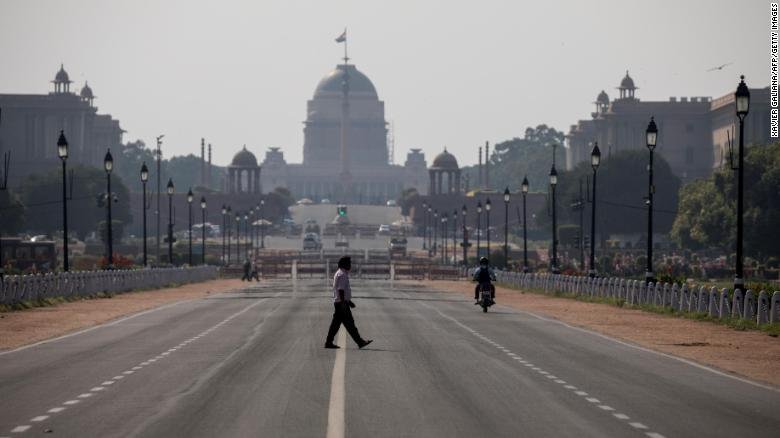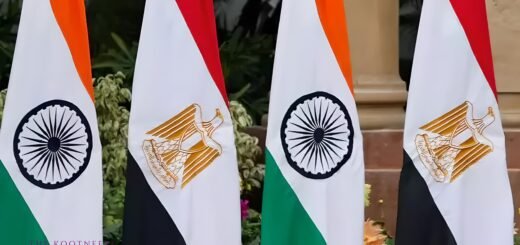India in the Post-COVID 19 World Order

The world is set to witness numerous far-reaching changes in its nature and structure in the wake of this pandemic COVID 19. The contemporary structure and architecture of globalization will be suffering from huge scepticism, opposition and confusion. The subsequent state of flux of the world order is going to present multiple challenges and necessity of adjustments in light of the impending changes and realignment of power and legitimacy of countries, institutions, process and ideas of governance in the post-COVID 19 world.
The enormity of the crisis is a clear hint to the fact that the post-world war II structure and architecture is not competent and ready to manage the crisis of this scale. It has developed several iniquitous structure and visions under the influence the powerful countries and therefore failed to build and promote strong multilateral institutions and mechanism with a shared vision to deal with such common threats and challenges. Thus the response strategy and its pace in the face of this pandemic has been characterised by a narrow and parochial approach which is worrisome and going to complicate and test hard the mankind as never before.
The major players of the present global architecture are on the way to lose their legitimacy in the future world order. The immediate post-Corona world is going to witness considerable uncertainty, contest for new legitimacy and acceptance of new players and leaders of the emerging world order. A situation like this involves risks and unassured outcomes but also throws new opportunities to the bold and performer. It is surely a moment of opportunity for a country like India to prove its capacity, leadership vision and chart a decisive course to the frontline of the World Order underway.

The size of the population, the proportion of the population in the unorganised sector, not-so-good state of the health care system and its distribution in our country makes the situation very alarming and portends very difficult times ahead. India’s response to the pandemic so far has been marked by appropriate both in terms of direction and requisite pace. The administrative measures of lockdown is surely going to help arrest the menacing spread of the virus- the most pressing concern at the moment. There is a huge concern about the essentials materials and their availability during the period. Government steps have so far managed the services quite appreciably. The concern about the large section daily-wagers, workers of small businesses and large unorganised sector is truly enormous and needs immediate contingency plan and action. The government has taken initiative to distribute food and essentials to the needy through police, other government aid organizations and agencies. This step can be effective with the participation of capable private individuals and entities in the society.
Amidst the crisis, while every country busy with their crisis management effort and sealing of their borders to contain the spread, the SAARC video conference has been a bold step in the direction of regional cooperation to deal effectively with the pandemic. India has proposed a swift and shared responsibility for the region. The Indian Prime Minister has called for the creation of a COVID 19 Emergency Fund and a Rapid Response Team and pledged a contribution of $10 for the Fund. It has been suggested that Experts in the countries of the group would share and exchange their experiences and concerned information through video-conferencing every week to analyse the situation and revise the plan to fight in a more effective manner. The initiative is a sincere and pragmatic approach as the whole region is extremely vulnerable to the spread of this fatal virus. Such a measure of cooperation, concerted and coordinated action is an urgent need of the hour.
Besides this neighbourhood outreach, India has taken the necessary step to coordinate the efforts in the extended neighbourhood especially the region of Gulf. Around 6000 Indian nationals were stranded in Iran and the latter didn’t have the necessary testing facility to test the Indian nationals. India made a bold plan and sent the C-17 Globemaster III, a heavy military transport aircraft with experts and medical equipment to set up a testing lab there and which will be donated to hard-pressed Iran as a gesture of friendship and cooperation in their times of unprecedented hardship. These steps and gesture will boost our vision of ‘Link West Policy’ in the region in the post-pandemic era.
India has also reached out to other countries in the region to create a bond of needful coordination to overcome this transnational pandemic emergency. The region carries very special importance for India as it hosts a large India diaspora of considerable economic significance. The region holds paramount geostrategic significance and energy security importance too. Building cooperation at this juncture is sure to spur India’s standing in the region in the long term in the post-COVID 19 world and enable India to the leadership position in the consequent emerging world order.
During its outreach in the region and beyond the Indian Prime Minister has been hailed for the initiative of SAARC Video-Conference and the Regional Strategy and the Crown Prince of Saudi Arabia, Mohammed Bin Salman has requested to expand the G-20 level to create broader consensus and expanded cooperation to tackle the crisis. India has responded with responsibility and swiftness to the requests from all quarters including China. Despite its own requirements, India has made cooperative responses to requests in the region and beyond. It made the medical emergency assistance of 15 tonnes of masks, gloves and requisite concerned medical materials to China as well.
Besides, the Indian government has displayed notable contributions in the evacuations of Indians and people of other countries from the pandemic-hit countries. The Air India Flight was made a very smart evacuation of Indian from the epicentre of the COVID 19, Wuhan. It also displayed an appreciable gesture of a leader in evacuating the nationals of other countries from the region responding to the requests from their respective countries like Myanmar, Maldives, USA and Nepal etc.

The swift precautionary measures by the government have limited the spread and with the size of the population of 1.3 billion the performance of the country has attracted the appreciation of the WHO. The Health Emergencies Programme Director, Michael Ryan has India has a tremendous capacity to combat this novel virus as it has shown and proven it before by eradicating two pandemics-small poxes and polio. Besides, Dr Roderico Ofrin Regional Emergencies director, WHO, has lauded the rapid response of India to the pandemic. Measures of social distancing, home quarantine and isolation during the ongoing 21 days lockdown are going to produce the desired results with other initiatives towards the availability of essential commodities to all including the poor and homeless. A pandemic of such scale is really very taxing but the measures taken by the government with the sincere cooperation of people and agencies involved will catapult India to the front in the comity of nations.
The world is already in the mode of ‘Easternization’ as the 21st century is projected as ‘Asian’ century. The pandemic is there to fasten the pace of the same. India with its size- geography, demography and economy appear to be capable of taking the centre stage in the global structure and governance. India’s stake and role in the multilateral institutions in every issue of global nature so far along with its constitutional democracy and non-hegemonic pursuits will make it most appropriate model of leadership unlike the Chinese in the post-pandemic world. Thus India is going to be the powerful claimant to the leadership of revised, restructured and more equitable global architecture based on principles of shared responsibility and pragmatic multilateral institutions and mechanism to lead the world to a safer and better future.



















